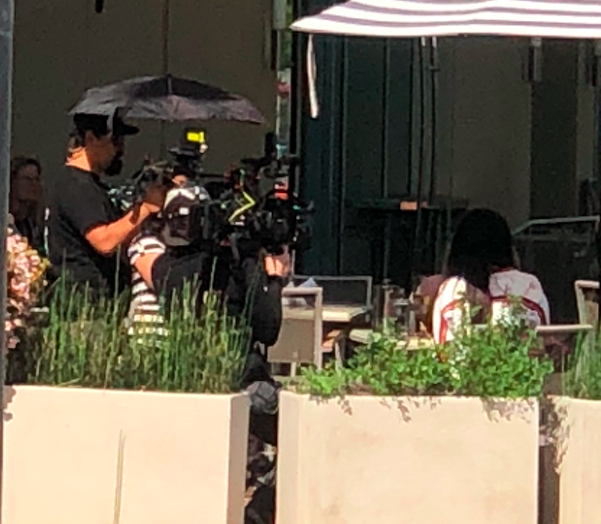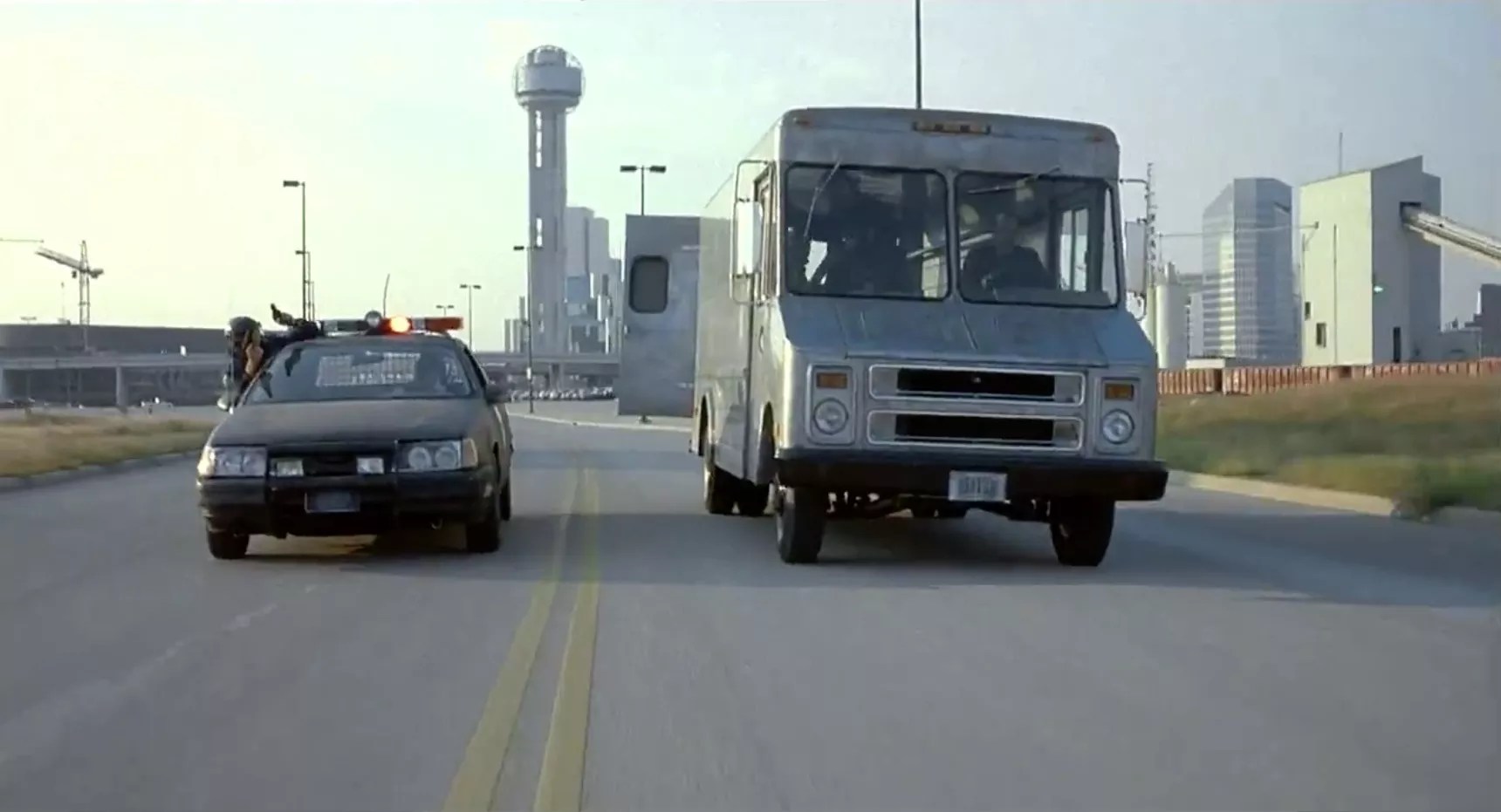
Nick Hance

Audio By Carbonatix
For years, the Texas legislature has decreased and even tried to zero-out the funds for the state’s tax incentives to attract film, television and video game productions to the state. Now it finally has a dollar figure that could bring big-name productions back to Texas and even Dallas once again.
Two bills that made their way through the most recent legislative session in Austin raised the funding for the Texas Moving Image Industry Incentive Program from $45 million to $200 million.
“Everyone is very excited because it means that Texas will be competitive again when it comes to attracting projects,” says Tony Armer, the commissioner of the Dallas Film & Creative Industries Office.
The news isn’t just great for film buffs and studios looking for places to set up their cameras. The higher tax incentive designed to bring more productions to Texas means more opportunities for crew members to find steady and well-paying work.
“This is the largest funding to the program ever,” says Fort Worth Film Commissioner Jessica Christopherson. “We’re excited to see this much support from legislators to growing the film community throughout Texas. It’s huge.”
Both Texas and Dallas have a lot of ground to make up considering the recent lack of film productions. Texas’ history in the film industry goes back a century to the 1927 war drama and first Best Picture Oscar winner Wings, which was shot in San Antonio and Bexar County. Dallas was known as “the third coast” in the ’80s when some of the film, commercial and television industry’s biggest productions were shooting scenes throughout the city – such as the satiric sci-fi story RoboCop and the hit CBS primetime soap Dallas.
More recently, tax incentives for productions in states such as Louisiana and Georgia have grown, while Texas’ incentive fund slowly decreased. The state legislature cut the tax incentive by two-thirds in 2016. The following year, current State Senators Robert Hall (R-Edgewood), current Rep. Matt Shaheen (R-Plano) and former State Senator Konni Burton (R-Colleyville) submitted bills to completely dismantle the tax incentive program.
The 81st Texas Legislature created the Texas Moving Image Industry Program in 2009 with an initial funding rate of $62 million. Dallas became the production site for shows such as HBO’s True Blood, FOX’s The Good Guys and TNT’s revival of Dallas. Two years later, the legislature pushed the funding down to $32 million, according to the Texas Film Commission.
Lower funding and better offers from other states led to less work for people such as Eve Butterly, a freelance script supervisor from Dallas. Within a year, she went from a lucrative career on a primetime FOX sitcom to figuring out how to make sure her daughter didn’t go to school hungry.
“I made six figures,” Butterly says. “I made a lot of money. I paid off my divorce lawyer, refinanced my house, took my daughter on vacation and paid off my credit cards. Next year, they reduced the incentives and I applied for the free lunch program at my daughter’s school.”
Butterly says the lack of local productions forced her to work on independent projects that paid significantly less. She also couldn’t go out of the state, where big budget production were being filmed, because she was raising a child as a single mother.
“The indie things, there I make 150 bucks, whereas on a union show, I can make $3,000, $4,000 or $5,000 a week,” Butterly says. “When my daughter went off to college, I was excited because that means I could work out of town.”

Recognize the tower? That’s Reunion Tower in the hit 1987 film RoboCop, which showed up in one of the film’s opening chase scenes. Director Paul Verhoeven filmed his sci-fi satire all over Dallas.
Screenshot from RoboCop, 1987
Meredith Stephens, the executive vice president of MPS Studios of Dallas and a founding member of the Texas Motion Picture Association, says hit shows such as the Yellowstone TV spinoff 1883, which filmed primarily in Weatherford and around Fort Worth (including the nearby Four Sixes Ranch), and Angel Studios’ spiritual drama series The Chosen, which filmed throughout North Texas, played a big role in changing the minds and votes of legislators.
Films such as David Lowery’s The Green Knight and the recent Walker reboot in Austin also contributed to the push for more funding, Stephens says.
“This is going to accelerate that, because we’re highly competitive with other states now,” Stephens says. “There are producers who already want to shoot here because they can look at Texas in a new light.”
The only thing standing in the way of getting Texas and Dallas crews back to work is the Writers Guild and Screen Actors Guild strikes, which have halted productions across the board. At issue are low pay for writers and the rising threat of studios using artificial intelligence to replace the hard work of non-pixelated people. Armer predicts the strike will end around September, and once the holidays pass, he expects “a massive amount of projects that want to shoot” to start picking up the slack at the beginning of 2024.
“Everyone sees the impact this has, not just on the big markets but for small towns and out-of-the-way places as well,” Armer says. “It’s literally creating hundreds of jobs and they’re spending millions of dollars in our local economy. So it has a huge impact.”
Butterly is currently working on a project in Louisville, Kentucky. The production has paid for her hotel room for six weeks. She eats out in local restaurants and does sightseeing on the weekends. All of that money goes into the pockets of the local economy.
“We buy lumber, food and heck, even ice,” Butterly says. “That’s millions of dollars on a big show that everybody gets something from when the circus comes to town.”